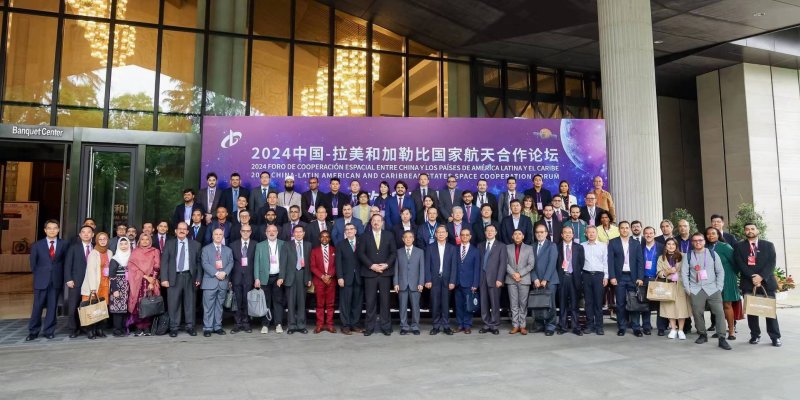The Brazilian Space Agency (AEB) took part in the 1st China-Latin American and Caribbean States Space Cooperation Forum, held in Wuhan, China, at the end of April. The aim of the meeting was to discuss and present new technologies in the sector and ongoing cooperation.
On that occasion, the Forum issued the “Wuhan Declaration” to promote the aerospace industry and help build a China-Latin America community with shared technologies. The deepening of aerospace cooperation between China and Latin America, according to AEB, will benefit both sides.
The president of AEB, Marco Antônio Chamon, said that the Earth faces several challenges, such as climate change and marine plastic pollution, and no country can deal with these problems alone. Space technology, data and services can help solve these problems. “This is a good opportunity for Latin American and Caribbean countries to strengthen cooperation with China and jointly explore the development and application of aerospace technology,” he said.
Brazil and China have been cooperating in space for over 30 years. In 1988, a cooperation agreement was signed to jointly develop earth resources satellites, the CBERS Program. In 1999, the Sino-Brazilian Earth Resources Satellite – CBERS 1 was successfully launched, becoming the first satellite of the cooperation. Data from the CBERS Program is not only widely applied in the fields of agriculture, water conservation, environmental monitoring, but also provides remote sensing services to developing countries in Latin America, Africa, the Association of Southeast Asian Nations (ASEAN) and other regions.
Recently, the President of Brazil, Luís Inácio Lula da Silva, and the President of China, Xi Jinping, signed an agreement to launch the sixth satellite in the partnership between the countries. Produced jointly by researchers from Brazil and China, Cbers-6 is being developed by the National Institute for Space Research (INPE), part of the National System for Space Activities (SINDAE), which is coordinated by the Brazilian Space Agency. It is expected to be launched in 2028 from a Chinese launch base.

